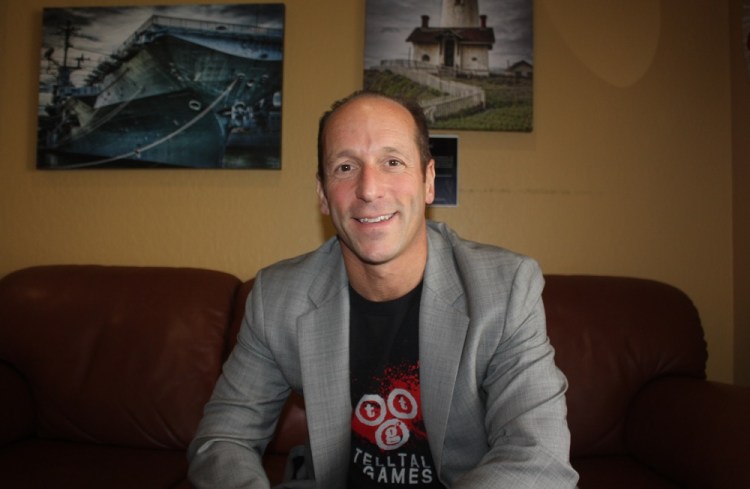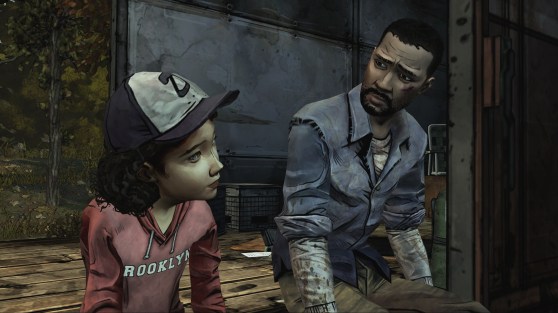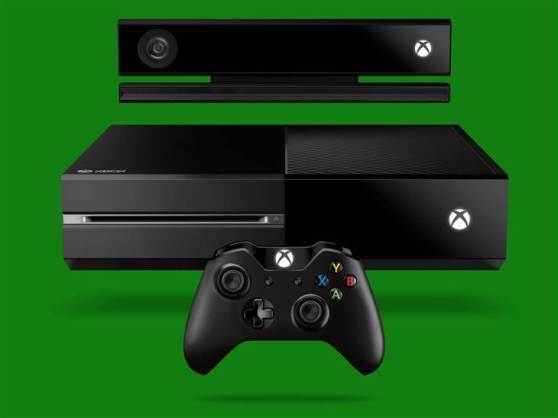GamesBeat: Do you hear any particular criticism of that view from other venture capitalists? Do any other investors have various reasons to believe that gaming isn’t going to live up to some of these expectations?
Sanderson: Absolutely, I do. I talk to a number of investors who have made game investments in the past, even successfully, and they say, “We’re not doing as much gaming.” Part of it’s the high-profile nature of Zynga, and also that perception that gaming is a one-hit wonder space, that it’s a hit-driven business like running a movie studio.
I don’t believe that’s necessarily the case. When you create a movie, it needs to be a hit, and you’re not sure it’s going to be a hit. You know you have expensive actors that people will want to go see, but that doesn’t mean it’s going to be a popular movie. In the case of a lot of the investments I’m making in games, I do see it as a hit-driven model. If you create a business model that works and a technology that works, and then you layer on the genres, such as fantasy or war or crime or space, the genres that have worked in the past—If you layer that on to the model, in many cases they will work really well.
Going back to King, because they’re on file to go public and so forth, they’ve got more than 100 million daily active users of their games. If they come out with a new game, they’re going to cross-promote that game. Hopefully they can do it effectively. They’ve been the mobile game space almost 10 years, so for a company like King to create a new game, they have an advantage. It’s not all based on luck. It may be based on luck initially, like with Angry Birds and Rovio at first, but today, Rovio can continue to make great products and great games.
Zynga was one of the largest hiring companies of MBAs, because that was their culture, to create as much revenue per user as they could. It was not necessarily a culture of creativity. In fact, there’s a common practice within Zynga to stand up in front of your peers and explain why you made a mistake that you made. That works well for certain types of people, and it doesn’t necessarily work well for creative people. It quells creativity. Many of Zynga’s games, initially, they had purchased or copied.
It’s a very different culture that I see in most of the game companies that I talk to, who are very creative, who create platforms that are scalable, who are not just throwing darts at the wall and hoping to hit the bull’s-eye. That’s a common perception that will go away eventually. I see it as a wide-open market for me and a few of my peers to make great game investments.
GamesBeat: The year of the story, or storytelling in games, has been talked about in a variety of places. A lot of it was spurred by the success of The Last of Us and BioShock Infinite last year. But you invested in Telltale five years ago. There was no year of the story on the radar at the time. That’s an interesting perspective. As a VC, I guess you do want to jump on trends before they become real, but you were way ahead of the curve on that one. If people are investing now, is it too late to invest in that kind of trend?
Sanderson: I don’t think this is a one-horse race. Telltale’s business model and focus has been unchanged from their very beginning, which is impressive. Most startups end up changing their business model a few times along the way. They have not, which has been great. With Walking Dead, they won 90 game of the year awards. They’re doing incredibly well with Fables. They’re working on Tales from the Borderlands now. They released Walking Dead season two. I see them as one of the leaders, if not the leader, in the storytelling category.
There will be multiple winners here, though. One thing that Telltale has shown is that people love this form of interaction. In many cases, the line between games and media consumption has been blurred. Just as you would sit down and watch a TV show or a movie, or read a book, when you interact with a game like Telltale’s and you follow the storyline and make decisions that change the outcome, it’s sort of like watching an episode of Breaking Bad, or some other TV show. It’s a pretty broad market. People like to interact with content. They like to follow storylines. There will be a lot of other storytelling types of games and interactive media companies that evolve.
A lot of it will be around existing IP. For a license holder, like a movie studio, these types of games offer really lucrative incremental revenue. They’re willing to license to great game companies.
GamesBeat: It would probably not be a great thing if there were 100 storytelling-game startups tomorrow, though.
Sanderson: Yeah, that’d be tough. But I’m already seeing some new ones that are very interesting. When you have an engaging device, like an iPad or another tablet, it’s a great medium, to be able to enjoy a storytelling game. It’s a very rich experience.
GamesBeat: Are you still seeing a lot of console game developers give up and try to form new online and mobile studios?
Sanderson: I see a lot of console developers, who’ve created very successful games in the past, move to mobile. It’s a bit of an issue for me, because I believe you need the mobile experience to be successful, or else you’re going to go through some trials and tribulations along the way. You’ll spend a lot of money to be able to learn about that.
One of the big differences is that the development cycle for a great console game may be one or two years. For a mobile game, it’s four to six months. Then you continue to build on that. I talk to companies who say, “Yeah, we’re going to launch in mid-2015.” You can’t do that in the mobile space. It doesn’t work.
So I see a lot of movement from the consoles to mobile. I don’t see a lot of people continuing to produce for the console category. That’s just the big guys — Activision, EA, Microsoft and so forth. There has been a big shift away. Plus, it’s hard to make money as a pure development studio for the big publishers in the console space. It’s going to be a challenge for the publishers.
GamesBeat: What do you think of the big game publishers right now and the platform owners like Nintendo, Microsoft, and Sony?
Sanderson: Microsoft is doing a pretty good job with the Xbox, as is Sony with the PS4. I’m challenged to figure out where Nintendo is going. A lot of people are. They have a lot of cash, but they don’t have a historical model of buying companies, so they need to develop something that works. I can’t see where they’re going.
The Xbox would be better if it weren’t part of Microsoft, I think, if it were spun out. But who knows what’ll happen there? They’re still great platforms, both Xbox and PlayStation. I love what they’ve done with Xbox Live and PSN, with the online communities. Those will continue to grow and people will continue to spend money on those. Those are powerful platforms.
Amazon has done an incredible job with the Kindle. They’re becoming more relevant. We’ll see them as more of a major player. Google has likewise done incredibly well with Android, especially with Google Play. I’m seeing more startups focus only on Android, which is very interesting. The open nature of Android makes it a lot easier to work with as a publisher. Their platform is so large that it’ll remain one of the major players.
GamesBeat: I wonder if Google, Apple, and Amazon are the ones that might move further into the home and try to disrupt console gaming with mobile technology.
Sanderson: Their move into the home probably won’t happen through a set-top box. It’ll happen on the tablet. If you have a tablet in your hands and you connect it to Apple TV and play an incredible game on your screen, that’s a great experience.
I would rather see them do that through Apple TV than try to come out with another console, which I don’t think they would do anyway. They’ve done that in the past. Microsoft has done that in the past. It hasn’t really worked. But the tablets are getting better and stronger. They’ll definitely take away market share from the set-top boxes.
When you think about Activision and Electronic Arts, they have great legacy products and great legacy IP. They’ll continue to produce great games there. But I don’t see them as innovators within the mobile gaming world. Again, mobile gaming, the revenues aren’t that big today. It’s under $2 billion. But it’s growing very quickly. It’s where the market is going. They need to play in those categories in a much bigger way.
It’ll take them a while. They’ll probably look at some major acquisitions – not in the next year, or even two, but beyond that. And when they do a major acquisition, it’ll probably be with a large company like a Gree or a DeNA or a Gung Ho.
GamesBeat: What do you think of the newer technologies that are coming in and affecting games in some way, like virtual reality with Oculus or Steam Machines from Valve — or the Ouya?
Sanderson: I’m rooting for those guys, but it’s hard to see how the virtual reality area will make a large impact. I would love it if they did. I’ve seen it not really get any traction over the last 20 years. Ouya has its challenges as well. I would love for those guys to take off, but there are major players in this category that are hard to disrupt on the platform side. It’s a hard investment case to make when I look at them. I would love to see more of a fragmented marketplace, but like many markets, it consolidates over time. I don’t know how they’ll do in the long run.
In general, though, I’m bullish on the gaming market. We’re doing seed investments, very early stage. We do about seven or eight of these per year, and four to five series A or B investments per year. We look at some late stage investments as well, but that’s our sweet spot.
There might be some activity, again—When eBay went public, for example, there was a rash of IPOs afterward. When Google went public, there was a rash of IPOs afterward. They followed big droughts in the market. King could be that. We could see other companies start to look at IPOs in the U.S. If you look at the big players today, it’s Kabam, Kixeye, Telltale, and some others in the private markets. I would like to see some liquidity for some of these private companies, possibly in the IPO category. It may take a King or someone else like that to get the ball rolling.
VentureBeat's mission is to be a digital town square for technical decision-makers to gain knowledge about transformative enterprise technology and transact. Learn More





